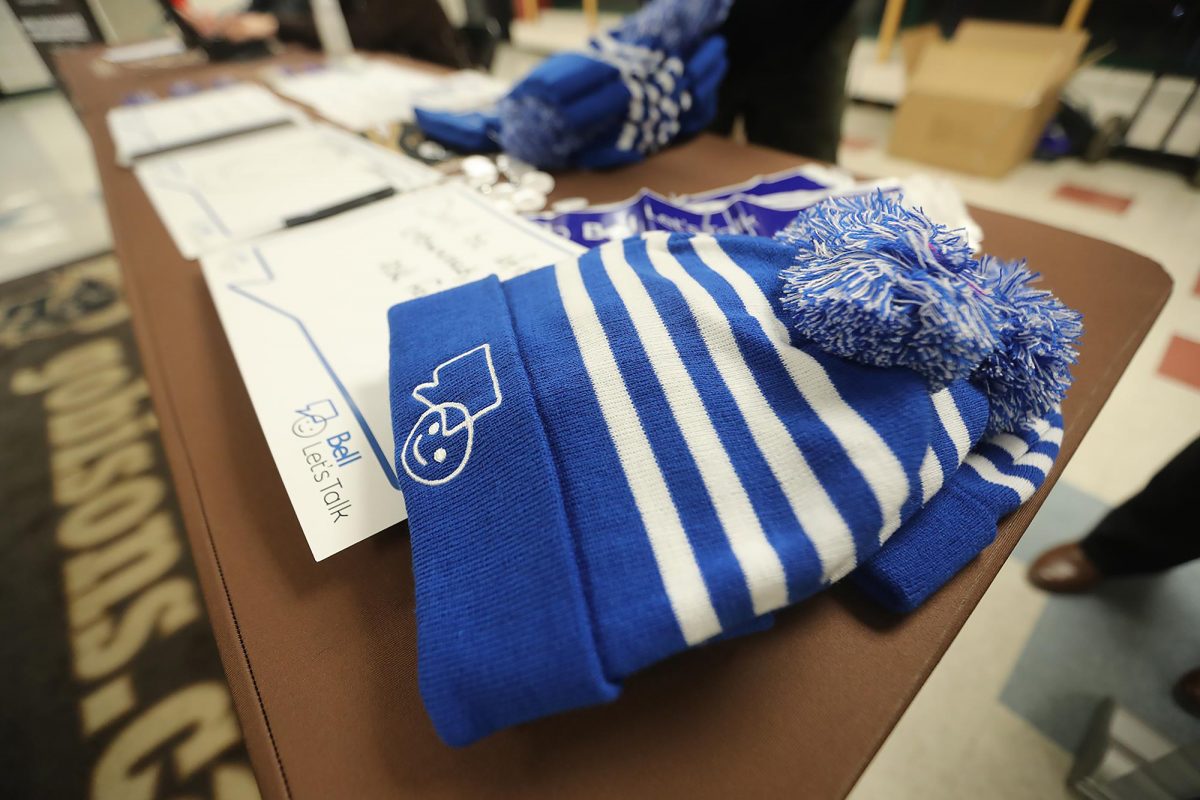
Now more than ever, let’s talk
Jan. 28 is Bell Let’s Talk Day; check out this year’s UM virtual events
This year, the University of Manitoba will once again be one of over 200 post-secondary institutions across Canada to join the world’s largest mental health conversation with Bell Let’s Talk. Dedicated to leading the way in moving Canada’s mental health forward, this campaign highlights the importance of raising awareness about mental health and supporting its care.
With the additional impacts of COVID-19, Bell Let’s Talk emphasizes that now more than ever, every action counts.
“UM is committed to supporting our students’ mental wellness through supports, services and educational programs, and we are happy to continue the conversation through national programs like Bell Let’s Talk,” said Laurie Schnarr, Vice-Provost (Students).
“These past ten months have been incredibly demanding for our students and, while I am inspired by their resilience, I encourage everyone to be mindful of each other and to reach out if you are struggling or if you see someone who may need help.”
What’s happening at UM: Virtual Events
Join us and take part in any number of events that have been planned for virtual delivery:
Active Minds
January 25-29
Join the Conversation as Active Minds executives will be going live all week on the @uofm_activeminds Instagram account to discuss what Bell Let’s Talk day means to them and the issues involving mental health that are most important.
Throughout the week, check out Bell Let’s Talk Day photobooth and post a picture of you in the digital photobooth, accessible to all faculty and students with according University of Manitoba Email addresses, (__@umanitoba.ca, __@myumanitoba.ca)
Recreation Services Mindfulness Session
January 27, 12:00 p.m.
2020 was a year of change and continuous challenge leading to increased anxiety and stress for many of us. The practice of Mindful Meditation can help us be kinder to ourselves, decrease stress, regain focus, and reconnect to the present.
This short Mindfulness practice will guide you using breathing methods and guided imagery to relax the body and mind while focusing your attention on the present moment, accepting it without judgement and be open to experience and accept change. Join us on Facebook or visit the Virtual Health and Fitness website.
Wellness Sharing Circle
January 28, 10:30 – 11:30 a.m.
All students and staff are invited to join the International Center and @SpiritualCareUofM for a Wellness Sharing Circle with a focused talk from a humanistic perspective.
Learn new methods and discuss your own coping strategies, experiences, and self-care tips. We will be hearing from members of the UM community who find spirituality and spiritual health relevant to their wellbeing, despite identifying as atheist or agnostic.
To register, use your University of Manitoba email account at: https://www.eventbrite.ca/e/wellness-sharing-circle-bellletstalk-registration-136871679879
This session will be held via Zoom. Participants will receive their Zoom link and other meeting information 24 hours before the event.
Resilience workshop: Maintaining Wellbeing During the Pandemic
January 28, 1:30 – 2:30 p.m.
The COVID-19 pandemic has presented many barriers to our mental health. While the new vaccines provide some ‘light at the end of the tunnel,’ it will still be a while before we start seeing a return to life as it had been.
This interactive virtual session will provide an opportunity to discuss the changes and challenges we’ve experienced, and learn strategies to build and maintain mental health and resilience.
This workshop will be held online using Zoom, and is open to all students, staff and faculty. Register by contacting Arlana at arlana.vadnais@umanitoba.ca. The Zoom link and other meeting information will be provided upon registration.
Healthy U – Live Instagram Event
January 29, 11:00 a.m. – 12:00 p.m.
Healthy U will be hosting a live Instagram event (@healthyuofm) where they will provide information about the Healthy U office, discuss health and wellness tips, and answer questions from students.
Students can submit their questions through direct messages live during the event, or by sending questions ahead of time to hwprogram.assistant@umanitoba.ca or britt.harvey@umanitoba.ca.
Watch for takeovers on the @umbisons and @umstudent Instagram account from January 25-28 or find out how you can join the conversation below.
#bellletstalk #umanitoba #umstudent #weareallbisons
Join the conversation on Bell Let’s Talk Day!
On January 28, Bell will donate 5 cents to Canadian mental health programs for each of the following communications – at no cost to participants beyond what they would normally pay their service provider for online or phone access:
- Talk: Every local or long distance call made by Bell wireless and home phone customers (Bell, Bell MTS or Bell Aliant)
- Text: Every text message sent by Bell wireless customers
- Facebook: Every use of the Bell Let’s Talk Facebook frame or every view of the Bell Let’s Talk Day video at Facebook.com/BellLetsTalk
- Twitter: Every tweet and retweet using #BellLetsTalk, featuring the Bell Let’s Talk emoji, or every view of the Bell Let’s Talk Day video at Twitter.com/Bell_LetsTalk
- Instagram: Every view of the Bell Let’s Talk Day video at Instagram.com/Bell_LetsTalk
- Snapchat: Every use of the Bell Let’s Talk Snapchat filter or every view of the Bell Let’s Talk video
- Tiktok: Every video upload using #BellLetsTalk or every view of the Bell Let’s Talk video at TikTok.com/@Bell_LetsTalk
- Pinterest: Every view of the Bell Let’s Talk Day video
- Youtube: Every view of the Bell Let’s Talk Day video at YouTube.com/BellCanada
In 2020, Bell Let’s Talk Day set a new single-day record with 154,387,425 messages generated across all platforms, increasing Bell’s funding for mental health by an additional $7,719,371.25. Since the first Bell Let’s Talk Day in 2011, people have sent a total of over 1.1 billion messages in support of mental health.
Bell also extended the Bell Let’s Talk Initiative for another five years, and will continue to engage in four pillars: anti-stigma, improve access to care, advocate for research, and set an example in workplace mental health.







Can you purchase a bell let’s talk toque?